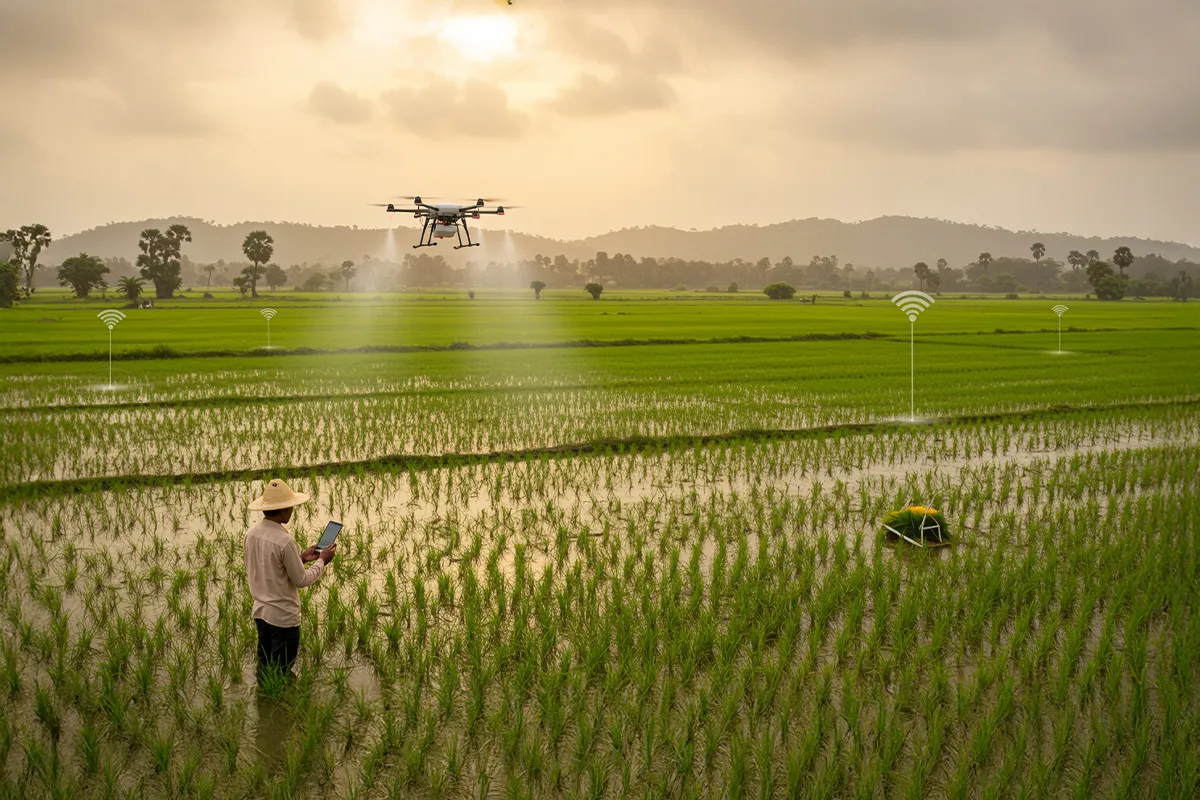The acute need for pesticides
According to estimates by United Nations Food and Agriculture Organization (UN-FAO), up to 40 percent of crops cultivated each year are lost to pests. The financial impact of plant diseases on the global economy exceeds $220 billion, and that of invasive insects is a minimum of $70 billion. This significant loss threatens the livelihoods of smallholder farmers and food security and underlines the importance of pesticides that can mitigate the risk and help farmers to
Every coin has two sides
On the one side, climate change has increased pest infestation and, therefore, increased the need for pesticides to control the threat to production. On the other hand, this highly beneficial range of chemicals can be extremely hazardous too.
Pesticides are essential for India’s Kharif season
The major agricultural seasons in India are Kharif (June to early November) and Rabi (November to March). During the Kharif season, spotted stem borer is among the most destructive pest, which results in yield loss of 26%-80% across different agro-climatic regions of the nation.
- Fall armyworm destroyed almost the entire maize crop in the country in 2018
- Onion Weed devastated the onion crop in Maharashtra in 2019
- Cassava mealybug affected tapioca in south India (September 2020)
- Prolonged monsoon rains resulted in multiple severe pests infestation (mosaic virus, pink and American bollworm) and diseases in Maharashtra (August 2021)
- Thrips Parvispinous, a new species of insect, affected the chili crop in south India (December 2021)
Caution is of utmost importance in the use of pesticides
The environment
- Excessive pesticide leaches into the soil and pollutes it
- It is washed by rain and enters the water cycle and contaminates the water
Humans and other living creatures
- These carcinogenic chemicals affect the human body's vital systems (nervous, reproductive, etc.)
- Acute health effects range from stinging eyes, rashes, and diarrhea, to blindness, dizziness, and even death
Ecosystem
- Excess use of pesticides is a threat to pollinators such as insects and birds, which can tip the balance of the ecosystem and impact food production
- Pesticides can enter the food system and contaminate it
Agritech innovations supporting the smart use of pesticides
Timely use of pesticides is vital, achieve it through data-driven smart farming
Consider the option of a pest observed by a farmer and then an agronomist analyzing it and finally giving advice on using the right pesticide. This time-consuming process has the inherent disadvantage of high scope for spread. It is here that remote sensing offers the most valuable input for data-driven smart farming.
Using remote sensing, geographical information systems (GIS), artificial intelligence, satellite imagery, as well as images captured from the field using farming management apps or farmer engagement platforms and big data, companies like Cropin’s Disease Early Warning Systems (DEWS) can monitor farmlands and predict possible pest infestation and diseases. Field staff can give alerts by sending pictures of pest infestation to agronomists who swiftly identify the pest and resolve the threat with advisories for farmers to control the spread. Not only is the process quick, but it is also highly cost-effective compared to the conventional field scouting method.








